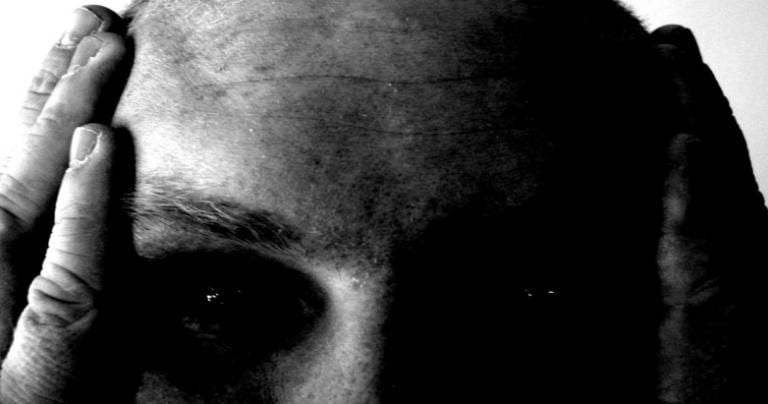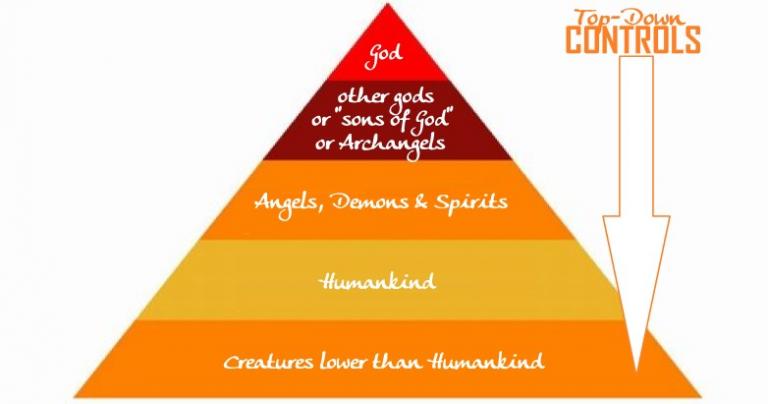
The Gospels understand sickness originating from demonic powers, a far cry from our Scientific Western sensibilities.
This week, Gospel readings turn to demonic liberation and to the beginning of the Jesus Movement as remembered and interpreted by the text called “Luke.” In this Tuesday’s Gospel we read about a son seized by a demon. The entire extended family of the sick person faced the danger of being cut off from the greater community. In the Mediterranean world of the Bible such ostracism was a death sentence.
American Demonic Blindspot
It is hard for United States people to imagine the resulting suffering. While we, individualists, might feel somewhat unpleasant to be cut off from our urban centers or stomping grounds, most of us wouldn’t necessarily die because of it. But some tribal societies execute members just by shunning them—and in documented cases, the ostracized person’s socialized and enculturated immune systems shut down soon after. They die without noose, bullet, blade, bludgeon, poison, or electric current used.
The socially constructed self of the MENA personalities of the Biblical characters and authors are most unlike Western post-industrial introspective persons.
Concerning the Gospel story, if demons haunt this family of fifty to 100 persons, who in the village would want to arrange a marriage or any close associations with their household? Much more than one person is being healed by this merciful act of the Lukan Jesus. But what is Biblical healing?
A Biblical Cure?
Two days before he died, a wealthy former employer requested the presence of a former worker. The younger man obliged. They had shared Catholic beliefs, practices, and so-called “Bible study” (mostly a connect-the-dots, triumphalistic, theological boilerplate that “proved” their common beliefs as the best, and the first, and the true, and the only). For fourteen months they had worked together—the young man on forklift or building pallets of what they sold, the old owner in office by the showroom making money. The young man was very poor.
The old millionaire prided himself as a true Catholic to the core. In health, he physically had resembled Cervantes’ el ingenioso hidalgo Don Quijote de la Mancha, and he used this appearance to make-believe he was a modern version of the hero. Verbally-orthodox, yet antithetical to the greater Catholic social teaching or justice-related to the poor (“Communism!”), his faith was driven by fear and self-justifying devotion.
But there before his guest he sat, all wasted away from cancer and chemo. He was bloated and shrunken all at once. As pale as death, his neck was disfigured by a huge growth appearing like a great mango had been shoved into it. Pain had carved channels into his almost unrecognizable features. Languishing, he labored not to sob from the intense pain. The dying owner wheezed and fought to smile. “I am going to beat this,” he said in blind confidence. “I will beat the masturbation,” he confessed. “I will beat the cancer.”
The Biblical Answer to Cancer
Only one year before, the owner had been diagnosed with stage four lymphoma. Nevertheless he was convinced that Jesus would cure him, fix him, make him strong again. So he devoted these days of sickness to chemo but also to divine healing methods. Someone “fiercely orthodox” like him had informed him of a Scriptural cure, “right there in the Bible!” The formula was simple: drink a spoon of syrup and nothing but water all day together with “Daniel fasting.” It would cure him, he thought. “Health starts in the gut!” was his mantra and obsession. This was always followed by, “just like the Bible says.”
As the cancer treatments began he had shared this “Biblical Health Insurance” with the young man who, at that time, was still employed by him, working six days a week in the sweltering and unsafe warehouse. To the older man’s delight, his employee had tried it out for three days straight. But his employee proved to be “weak in faith”—the younger man apparently did not pray hard enough when, exhausted and near heatstroke, he collapsed onto the warehouse floor. By that night, Wendy’s 99 cent menu of sin was calling.
The owner shook his head at the younger man’s lack of faith and penchant for gluttony. “Salt and fat and sugar are not the biblical way!” But the older man would never lose his “faith.” It had given him fame and millions, house and family, the respect of other great men. He was a go-getter, a hard-worker, a Catholic Christian American Man! Look at what he had achieved! God would deliver him. God had shown him the Biblical cure for his cancer and all other diseases, such as his addiction to pornography and masturbation.
He kept his belief in cure and restoration right up until he expired. Two days before death he swore to his ex-employee in a raspy, desperate oath: “I’ll beat this! You’ll see! I’ll beat it in the Name of Jesus who cures! It’s right there in the Holy Bible!”
Healing and Curing
Every time you see the words “curing” or “disease” in your English Bible translation, cross these ethnocentric anachronisms out and write over them “HEALING” and “ILLNESS,” respectively. Sickness is a panhuman experience: all cultures know sickness. However, only some cultures interpret sickness as “disease” and seek “cures.” Cultures differ on WHAT they identify as sickness, HOW it is experienced, and remedies BY WHICH they address it.
As we have stressed repeatedly, Western readers need to take off their 21st century Western lenses when reading about sickness-events in Scripture. Our postmodern understandings particular to our scientific culture is nothing like what the sacred authors intended to communicate.
Some definitions (from Dr. John Pilch):
Sickness—a panhuman reality being interpreted variously in different cultures; a misfortune in human health and well-being, something wrong with the body.
Disease—a culturally-specific interpretation or explanatory concept of the reality SICKNESS, seen as a biomedical malfunction afflicting an organism.
Illness—another culturally-specific interpretation or explanatory concept of the reality SICKNESS, seen as a disvalued state of being in which social networks have been disrupted and human meaning lost.
Curing—the elimination of disease or the repair of the biomedical malfunction.
Healing—the restoration of meaning and wholeness to human life.
Some Demonic Distinctions
The New Testament tells stories about sick people, yes. But when it does it always reports episodes of illness, never disease. There were no microscopes in the world of the Bible—how could any biblical person know of viruses, germs, or diseases, much less document them? And what medical conditions were mentioned by the Scriptures? There are no blood tests, X-rays, lab results in the Sacred Page.
Speaking biblically, all human misfortunes are never caused by “whats” (e.g., germs, viruses, genes, hormones) but always by a “who” (e.g., God, spirits). Therefore, the only possible biblical help for the problem of illness could only come from a “who”—“whats” such as injections, ointments, pills, therapy and other medical treatments could not be conceived by Biblical characters or authors.
How different this is from our Western biomedical paradigm! When we experience something like a fever, we perceive it as a what, not a who (e.g., the demon named “Fever” that afflicted Peter’s mother-in-law). Westerners don’t get rid of fevers via a shaman, but by Tylenol!
Biblical Healing vs American Cures
Sick biblical people sought to remedy illness via the restoration of meaning, i.e., healing. But sick 21st century Western Bible readers desire cures, a silver bullet that destroys the virus, eliminates the cancer, restores a bodily function or power.
Biblical scholar John Pilch reminds us that no matter what happens or what conditions they suffer, all persons, no matter their culture eventually arrive at some meaning in life. Ultimately, everyone gets healing eventually. But even today, in our world of scientific wonders, cures are elusive and rare.
We can define biblical health as being whole, existing in a state of complete well-being. It is not simply being free of sickness or being infirm.
To be sick in the biblical sense means to have fallen out of wholeness, to have lost integrity, lost meaning and social mooring. This is very hard for Western Christians, so driven by performance and achievement, to grasp. The American understanding of health is an organism with ability to maintain itself via performance of functions over various activities natural throughout its species.
Did Jesus Heal or Cure?
Given all of this, is it right to say Jesus cured the sick? Or is it correct to affirm that he healed infirm people like the demon-possessed man in Luke 4? With Jesus those suffering the polluting skin condition became clean, the mute could speak, those without eyesight could see—whether or not there were biomedical changes, they were healed and that is the focus of the Gospels. Jesus heals, meaning he returns the sick to their proper social state.
The Bible was not written for, by, or about Americans and other 21st century Westerners. Americans see wellness as being able to function, perform, and do. This is why a healthy Westerner is a productive member of society. As seen already, biblical health is quite a different thing.
How sad it is that books proliferate about biblical nutrition and diet programs and health practices spelled out in the Bible as if the Scriptures were written to give our foreign scientific culture direct answers to human life! This is pooled ignorance.
Demonic Illness
In the cultural consensus reality of the Mediterranean Scriptures, the air around human beings is teeming with other-than-human persons called “spirits.” Some of these nonhuman persons are good and serve the Most High God. Others are malevolent, seeking to harm humankind. Some are mischievous and enjoy playing with and frustrating human beings just for kicks. All are more powerful—by far!—than human persons.
Again, to all first-century Mediterranean peoples, causality was about whos and not whats. “What happened?” is not a biblical question. “Who did it?”—is a biblical question. All causes were perceived as personal. There is no way to say in Hebrew, “It rained.” It is instead, “God sends the rain.” See? Something happens because someone did it. Biblically, all causes are personal.
According to all 73 documents in the library Catholics call “Bible” every significant effect in human life must have been caused by some person. Whether in ordinary village life, or on the cosmic scale, it’s always “who done it?” in the Scriptures. Storms or perfect weather, rains or drought, harvest or famine, earthquake or level ground, birth or infertility, health or sickness—all of these realities were outside of human control. Likewise, all of these were believed controlled and caused by persons operating in the cosmic social hierarchy:

Demonic Spirit Aggression
The Bible sees all human behavior under the power of personified forces called unclean spirits (or other-than-human-person-winds, Semitic), or demons (Greek). Spirit aggression was an everyday part of traditional Mediterranean life. As anthropologist George Peter Murdock explained, “without exception every society … which depends primarily on animal husbandry for its economic livelihood regards spirit aggression as either the predominant or an important secondary cause of illness” (Theories of Illness: A World Survey. p 82). The demonic was part of everyday life in the world of the Gospels.
Demonic Accusations
Being accused of demonic possession in the Bible was founded on the Mediterranean cultural understanding that all effects were caused by superhuman persons (lesser gods, or spirits, or demons). Everyone in the Mediterranean world expected to be attacked by demonic powers because everyone knows that evil assaults good (Luke 13:16).
The way biblical folks thought, to be possessed by an evil spirit must mean that the sick person is a social deviant or someone caught up in a web of deviant social relations. And therefore, whenever someone behaves in a manner outside social norms, it would not be a surprise for that person to be accused of being possessed by a demonic other-than-human person.
Jesus Accused of Being Demonic?
Jesus himself was accused of being demon possessed (Matthew 12:24; Mark 3:30; Luke 11:15), even of casting out demons by Beelzebul, prince of demons. Why? This Galilean peasant day laborer, a nothing-person from a nothing-place, was acting contrary to his inherited social status and role. The marvels he performed were obviously beyond his lowly agency. Someone outside the human sphere, a demonic power, was obviously responsible. Or was it God like Jesus claimed? Who could say?
Even in the maverick Fourth Gospel called “John” Jesus is accused of having a demon—curiously, the Johannine Jesus casts out no demons! But ever quick with an insulting word, the Jesus of “John” returns the demonic accusation against his enemies (John 8:44-52).
Healing The Demonic
Concerning those accused of being demonic, what was needed was an explanation clarifying the socially-deviant activities or situation. Perhaps God was the reason—prophets and folk healers empowered by the deity could appear odd, after all. God’s ways were often strange. But if the deviance was due to someone evil, this would be a dangerous threat to the community. Therefore the community ostracized and shunned accused persons.
This means that restoring freedom to one possessed by demons was not simply a matter of getting rid of the evil spirit but also a task of healing, a restoration of a sick person back into his or her meaningful place in society (Mark 5:18-20; Luke 8:39).
The Synoptic Gospels are filled with accusations of people having unclean spirits. Consider the demoniac of Mark 5:15-16, or the Syrophoenician’s daughter of Mark 7:25, or the deaf and dumb Israelite in Mark 9:25. These who suffered under demonic evil required the mediation of what anthropologists term a “folk healer.” In Jesus, they got one.
Demonic? Or Shamanic?
From the beginning of the Markan Jesus’ ministry, an unclean spirit declares the Galilean peasant Jesus to be, “the Holy One of God” (Mark 1:24), meaning a holy man, or what anthropologists call a “shaman.”
“Mark” further notes that whenever unclean spirits saw Jesus they would throw down the persons they possessed and cry out, “You are the Son of God” (Mark 3:11)—in the literal sense, a holy man, a shamanic folk healer, one like God who can barter divine favor with the realm of God. (It is important to recognize the distinction between the multivalent “son of God” and the Trinitarian expression, “God the Son.”) The Markan Jesus gives the Twelve, whom he commissions, shamanic authority like he himself enjoys (Mark 6:7; cf. Mark 1:27).
The other Synoptic Gospels agree with these stories. But no Gospel calls Jesus an exorcist or the healings he brokers “exorcisms.” Rather the power over demons Jesus has is due to him being an agent or broker of the God of Israel. He is able to heal the demon-possessed precisely because of his place in the hierarchy of cosmic powers. The Gospel writers use this power as evidence of his cosmic role.
Embarrassment of Demonic Proportions
In Mark 9:17-18, it is reported that Jesus’ disciples were unable to cast out a demon. In the honor-shame society of the Gospels, this is very bad publicity for the Jesus Movement. The Markan Jesus must repair this PR disaster quickly. He acts (Mark 9:25). “When Jesus saw that a crowd came running together,” Jesus “rebuked” the unclean spirit (v. 25).
Everything in Jesus’ world revolves around honor and honor is always a public reality. Thus, to grant honor, witnesses are essential. Despite the shameful incompetence of the disciples to heal, Jesus’ healing would reconfirm the honor of his political movement and coalition. The gossip network will spread the honor of Jesus (Luke 4:36-37).
The recognition of Jesus as Holy Man or Son of God—culturally understood—whether by demon (Luke 4:34) or human onlookers (Luke 4:36), is quite significant. The community becomes informed of the new status of Jesus, before a mere peasant day-laborer and throw-away person. And the formally possessed man is restored to his place among his people—he is healed. So too his extended family are healed. So too the people as a whole are healed.
Sacramental and Indirect Directions for Modern Christians
Like the dying wealthy employer, we 21st century Westerners, have our own demons. Contemporary American believers ought to celebrate our culture’s value for instrumental activism—doing, achieving, performing, and all related actions. But we must cease imposing this value onto the world of our Mediterranean ancestors in Faith and the healings of Jesus.
Jesus and his followers valued human wholeness and right being over doing. It wasn’t the biomedical condition of the paralytic laying at the pool for almost 40 years (John 5:1-18) that made him pitiable. Rather, it was because he was completely lacking kin or friends to place him into the pool! Individualists miss the horror of these collectivistic Gospels. Part of the man’s healing was Jesus becoming his first friend.
Our parishes, communities which praise and proclaim Jesus as Lord, are called to be places of healing. But some ministries mistake the word healing for curing. When curing does not come, or when whatever misfortune arises not deflected by “faith,” sometimes unfortunate theologies develop and proliferate which pool ignorance to the hurt of those suffering.
Mediterranean Insights
Do Mediterranean ideas about spirits and human power over demons readily translate into 21st century Western culture? Not really. Other-than-human persons are not really a part of Mainstream American daily experience—unlike 80 percent of present world cultures. But despite the efforts of certain disgusting figures in our world, ours is a multicultural society. Western life can be cold, impersonal, and scientifically objective. We may need to draw from old wisdom (new to us!) from our Biblical ancestors and so many cultures living today.
Our Mediterranean roots offer us a not-forgotten personal approach to life’s problems (e.g., spirits). Could being open to this help balance us? Can we find healing in our time of terrible division?
















